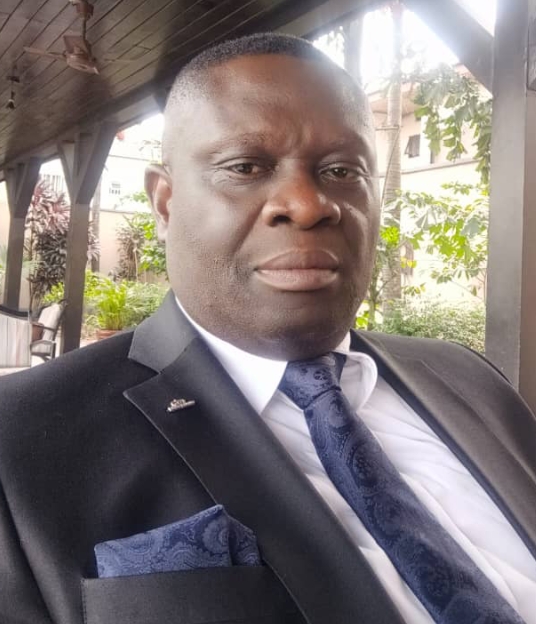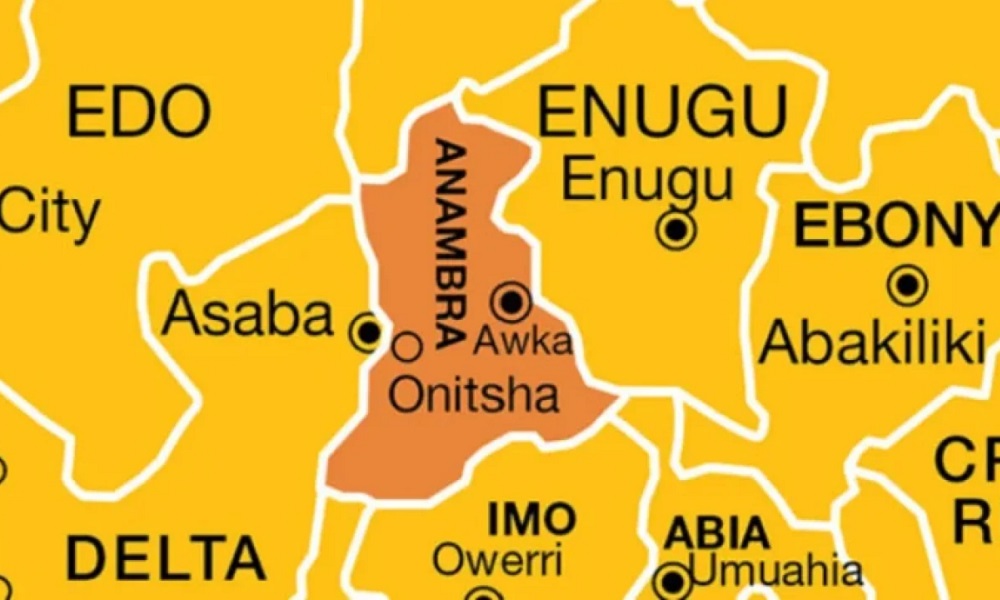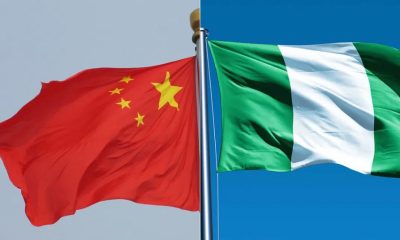News
Justice Delayed: The Imperative for Accountability in the Wake of Ibrahim Babangida’s Autobiography

By Dr Gabriel Nwambu
**Abstract**
The launch of Ibrahim Badamasi Babangida’s autobiography, “A Journey in Service,” on February 20, 2025, at the Transcorp Hilton in Abuja, marks a critical juncture in Nigeria’s political narrative.
While the book offers insights into Babangida’s life, his controversial past raises urgent questions about accountability, justice, and the prospects for Nigeria’s future.
As Nigeria seeks to grapple with its historical challenges, the call for Babangida to face consequences for his actions has never been more pertinent. This paper examines the need for accountability as crucial not only for justice but also for the integrity of Nigeria’s democratic foundation.
**Introduction**
Ibrahim Babangida’s persona as a leader encapsulates a troubling chapter in Nigeria’s history. Celebrated by some as a political strategist, his tenure as military head of state is also marked by egregious violations of civil rights and democratic principles. This analysis interrogates the implications of Babangida’s actions throughout his rule, particularly regarding deep-seated issues such as betrayal, the nullification of free elections, and the need for restorative justice in Nigeria.
**The Dark Legacy of Betrayal: The Execution of General Mamman Vasta**
A significant chapter in Babangida’s narrative is the betrayal of General Mamman Vasta, a man he once considered a closest friend. Their relationship, characterized by intimate gestures such as exchanging clothing, was shattered when Babangida accused Vasta of plotting a coup and ordered his execution. The pleas from respected figures in Nigerian society failed to dissuade Babangida from this decision, reflecting a chilling disregard for human life and friendship. The implications of this act extend beyond personal betrayal; they symbolize the treachery embedded within the political fabric of leadership in Nigeria, raising critical questions about loyalty and morality among those in power.
Babangida’s precarious ascent to leadership came through a coup d’état, overthrowing General Muhammadu Buhari, and establishing a regime characterized by manipulation and coercion. Despite ruling with an iron fist, he demanded respect as a democratically elected president, a title that contradicted the reality of his rise to power and governance. The duality of Babangida’s nature as both a strategist and a tyrant complicates the narrative, leading to a legacy fraught with contradictions and injustices.
**The Cynical Nullification of the 1993 Democratic Elections**
One of the most grievous acts of Babangida’s presidency was the denial of the results of the June 12, 1993, elections, widely regarded as the freest and fairest in Nigerian history, won by Chief Moshood Abiola. Nigeria had, for the first time, expressed its democratic will, and yet Babangida nullified the election, leading to a national crisis and significant unrest. The repercussions of this decision continue to resonate across generations, undermining trust in democratic processes and institutions. The tragic outcomes included the untimely deaths of pro-democracy activists, such as Kudirat Abiola, and an atmosphere of political hostility that set Nigeria on the brink of civil strife.
The key players and contributors to this crisis, including Babangida himself, are now deceased, including figures like Professor Humphrey Nwosu and General Sani Abacha. As Babangida now seeks to narrate his perspective from a wheelchair, the timing of the revelations seems more an exercise in self-justification rather than a sincere pursuit of truth and reconciliation.
**The Need for Accountability: A Call to Action**
As Civil Rights Organizations advocate, “A New Nigeria is Possible.” This ideal hinges upon confronting the past and demanding accountability.
Babangida’s actions warrant scrutiny not for the purpose of vengeance but as a vital component of a healing process that Nigerian society so desperately needs. It is essential that those who wielded power and exercised it with impunity face the full weight of the law. Only then can Nigeria embark on a path to genuine democracy, lifting the embers of a fractured past toward a cohesive future.
Moreover, the staggering sum of ₦17 billion raised during the launch of Babangida’s autobiography in a country struggling financially highlights a disconnection between wealth and accountability. This disparity poses a fundamental question about the values that the Nigerian elite perpetuate and the societal implications of such actions.
**Conclusion**
Babangida’s autobiography opens a window into a complex saga of Nigeria’s history, intertwining personal narrative with profound political consequences. However, it does not absolve the former leader from the weight of his legacy, marked by betrayal and the systematic dismantling of democracy. As Nigeria looks to reforge its identity and re-establish its governance structures, it stands as an imperative for the nation to confront its past injustices head-on. To pave the way for a better future, Ibrahim Babangida must face the law, not merely as a pursuit of justice but as a cornerstone of Nigeria’s commitment to democracy, accountability, and human rights for all. Until that day arrives, the specter of an unaddressed past will continue to haunt Nigeria’s political landscape.
Nwambu Gabriel, Ph.D.
News
EU leaders meet in Ukraine demand Russia’s unconditional 30-day ceasefire

In a significant diplomatic push on the ongoing Russia-Ukraine war, European leaders convened in Ukraine’s capital, Kyiv on Saturday, where they called out Russian President, Vladimir Putin, to agree to a 30-day unconditional ceasefire.
The European leaders threatened “massive sanctions” if Moscow fails to comply with their demand, according to Al Jazeera.
French President, Emmanuel Macron, German Chancellor, Friedrich Merz, and British Prime Minister, Keir Starmer, travelled together by train from Poland to Kyiv, later joined by the Polish Prime Minister, Donald Tusk.
The visit marked the first joint mission by leaders of these four European nations to Ukraine.
In a joint press conference with Ukrainian President, Volodymyr Zelenskyy, the leaders underscored their unified demand for an immediate halt to hostilities.
The proposed ceasefire, covering land, sea, and air operations, is seen as a critical step toward ending the three-year conflict.
Macron warned that the European bloc is prepared to escalate sanctions, specifically targeting Russia’s energy and banking sectors, should Putin refuse the proposal.
He also floated the idea of deploying foreign troops as a reassurance measure, saying, “The United States would take the lead in monitoring a proposed ceasefire, with support from European countries.”
Starmer delivered a sharp rebuke, stating, “Only one country started this illegal conflict, and that was Russia and Putin, and only one country stands in the way of resolving it peacefully, and that is Russia and Putin.”
Zelenskyy’s chief of staff, Andriy Yermak, highlighted the visit’s significance, saying, “There is a lot of work to do, a lot of topics to discuss.
“We must end this war with a just peace. We must force Moscow to agree to a ceasefire,” Al Jazeera reports.
Meanwhile, the Kremlin dismissed the European leaders’ demands, describing it as confrontational.
Russian spokesman Dmitry Peskov reportedly said, “We hear many contradictory statements from Europe.
“They are generally confrontational in nature rather than aimed at trying to revive our relations. Nothing more.”
The call for a ceasefire is also backed by U.S. President Donald Trump, who has proposed the 30-day halt as a foundation for peace negotiations.
However, Putin has so far resisted international pressure.
Ukraine’s Foreign Minister Andrii Sybiha reiterated Kyiv’s readiness, saying, “Our country and its allies are ready for a full, unconditional ceasefire with Russia for at least 30 days starting on Monday.”
The visit came a day after Putin struck a defiant tone during a military parade in Moscow commemorating the 80th anniversary of World War II victory, underscoring the entrenched tensions.
Al Jazeera’s Zein Basravi, reporting from Kyiv, noted that while the visit was “symbolic,” it also involved practical efforts to ensure U.S. engagement in future peace talks.
After the meetings, Ukraine’s Ministry of Foreign Affairs confirmed that the five leaders held a phone call with Trump to coordinate their peace strategy.
Sybiha emphasized on X, “If Russia agrees and effective monitoring is ensured, a durable ceasefire and confidence-building measures can pave the way to peace negotiations.”
The leaders issued a joint statement stressing their commitment, saying, “Alongside the US, we call on Russia to agree [to] a full and unconditional 30-day ceasefire to create the space for talks on a just and lasting peace.
“We are ready to support peace talks as soon as possible, to discuss technical implementation of the ceasefire, and prepare for a full peace deal.”
They noted, “The bloodshed must end, Russia must stop its illegal invasion, and Ukraine must be able to prosper as a safe, secure and sovereign nation within its internationally recognised borders for generations to come.”
News
NDLEA nabs Iran-bound woman with cocaine in private part, stomach, bag at PH airport(Photos)

. ..arrests 22-year-old British ex-convict with large drug shipment at MMIA; intercepts fuel tanker, 3 vehicles with 3, 047kg skunk in Niger, 775 litres of codeine in Kano
Desperate attempt by a woman, Ihensekhien Miracle Obehi who disguised with hijab to export large consignments of cocaine concealed in her private part, stomach and false bottom of her handbag to Iran has been thwarted by operatives of the National Drug Law Enforcement Agency (NDLEA) at the Port Harcourt International Airport, Port Harcourt, Rivers state.
Obehi who was dressed in hijab to beat security checks was intercepted at the departure hall of the Port Harcourt airport on Sunday 3rd May 2025 while trying to board a Qatar Airline flight to Iran via Doha following credible intelligence. During her search, she was found to have inserted three wraps of cocaine in her private part, and two large parcels hidden in false compartments of her handbag while she swallowed 67 pellets of the Class A drug.
As a result, she was placed under excretion observation and after four excretions that lasted days, she expelled the 67 wraps of the substance in her stomach. She claimed she was to swallow 70 pellets of cocaine but after ingesting 67 pieces she could no longer swallow the remaining three and decided to insert them into her private part. The total weight of the three consignments hidden in different parts of her body comes to 2.523 kilograms.
In like manner, NDLEA operatives at the Murtala Mohammed International Airport, MMIA, Ikeja Lagos on Friday 9th May intercepted a 22-year-old British national, Campell Kaizra Kofi Johannes Slifer coming from Thailand through Doha on Qatar Airways flight with two suitcases loaded with 35 parcels of Loud, a strong strain of cannabis weighing 37.60kg.
Campell who claimed he had twice been convicted in the UK for drug trafficking and robbery, said he was recruited in London to travel to Thailand to pick the illicit consignment and bring same to Nigeria.
In Niger state, NDLEA officers acting on intelligence on Wednesday 7th May intercepted a fuel truck marked ABJ 693 XU and three other vehicles loaded with 246 bags of skunk, a strain of cannabis with a combined weight of 3, 047 kilograms along Suleja-Kaduna road. Four suspects arrested with the exhibits include: Christopher Onyema, 47; Benedict Etineruba Young, 54; Chukwudi Ujue Jerry, 30; and Mohammed Abdullahi Danasabe. Apart from the fuel truck, three other vehicles recovered from the suspects include: Honda Odyssey bus marked YAB 667 CZ; Gulf bus with registration number GWA 125 TQ and
Honda Odyssey bus marked ABJ 230 CN.
At Oja Amukoko in Ijora area of Lagos, two suspects: Eze Chekube Emmanuel and Ike Samuel Chinyerem were on Thursday 8th May arrested by NDLEA operatives with a total of 109,914 pills of tramadol, swinol and nitrozepam seized from them.
While 52.5kg skunk was recovered from two suspects: Lukman Sabo Umar, 23, and Tukur Ammadu, 20, in a bus at Gwantu, Sanga LGA, Kaduna State on Tuesday 6th May, NDLEA operatives on patrol along Bode Saadu- Jebba expressway, Kwara State on Monday 5th May
arrested Rufai Nasiru with 45,400 pills of tramadol 225mg.
In Bauchi state, NDLEA officers on patrol along Bauchi-Gombe road on Tuesday 6th May intercepted a Toyota Tundra jeep marked RBC 111 DW conveying 526 blocks of skunk weighing 505kg with two suspects: Isaac Onogure, 37 and Ikechukwu Peter, 44, arrested.
A total of 31 kegs containing 775 litres of codeine syrup were recovered from two suspects:
Hafizu Isa Uman, 34, and Ismail Shehu, 48, when NDLEA operatives raided their hideout at Rijiyar Zaki area of Kano on Saturday 10th May, while 1.1kg of Loud consignment concealed in pillow coming from Thailand was on Tuesday 6th May intercepted by NDLEA officers at a courier company in Lagos.
The War Against Drug Abuse, WADA, social advocacy activities by NDLEA Commands equally continued across the country in the past week. Some of them include: WADA sensitization lecture delivered to students and staff of Federal Government College, Sokoto; Deeper Life International College, Nteje, Anambra; Martins Sanda Girls Science College, Paikoro, Niger state; Restoration Power International School, Idua Eket, Akwa Ibom; while Oyo state command delivered WADA enlightenment lecture to members of the League of Imams and Alfas at Iseyin Central Mosque, Iseyin, among others.
While commending the officers and men of DOGI, MMIA, PHIA, Lagos, Kano, Kaduna, Bauchi, Kwara, and Niger Commands of the Agency for the arrests and seizures of the past week, Chairman/Chief Executive Officer of NDLEA, Brig. Gen. Mohamed Buba Marwa (Rtd) equally praised their counterparts in all the commands across the country for pursuing a fair balance between their drug supply reduction and drug demand reduction efforts.
News
Anambra takes action against primary school over N5,000 prefect nomination fee

The Anambra State Government has slammed a one-month sanction on Blossom Fount School, Awka, for monetising student leadership by charging pupils N5,000 to contest for the position of head prefect.
The sanction, announced on Saturday by the state Commissioner for Education, Prof. Ngozi Chuma-Udeh follows reports that the school imposed the controversial fee on pupils in its primary section vying for leadership roles.
Describing the practice as “despicable,” Chuma-Udeh expressed outrage at what she called an attempt to commercialise student leadership and exploit the ambitions of young children.
She said, “Investigation is going on to know how the school is being run. It is an act of selling the psyche of the children to the highest bidder from the cradle, and it is not acceptable to this government.”
“The act of commercialising student leadership and exploiting children’s ambitions for financial gain is despicable. It amounts to selling the psyche of the children to the highest bidder from the cradle, and it is strongly condemned,” she added.
Chuma-Udeh stressed that Governor Chukwuma Soludo’s administration remains committed to upholding integrity and fairness within the education system, stating that such practices will not be tolerated.
According to reliable sources, the ministry’s investigation is still ongoing, and further sanctions may be imposed depending on the outcome. The goal, officials say, is to ensure accountability and deter similar actions in schools across the state.
-

 News18 hours ago
News18 hours agoTrouble brewing as Trump’s supporters move against Pope Leo, give reason
-

 News20 hours ago
News20 hours agoHow doctor stole one of my twins during birth, Abuja housewife narrates nasty experience
-

 News20 hours ago
News20 hours agoNaira Rebounces Against Dollar – Saturday, May 10, 2025
-

 News18 hours ago
News18 hours agoChina Responds to AFN Claims Over Visa Delays for World Relays in Guangzhou
-

 Entertainment7 hours ago
Entertainment7 hours agoFemi Adebayo wins 2025 AMVCA ‘Best Lead Actor Award
-

 News8 hours ago
News8 hours agoNatasha’s TikTok vibe to Tinubu’s song raises concerns about potential defections
-

 News18 hours ago
News18 hours agoReflections of Hon. EJ Agbonayima on Nation Building
-

 News18 hours ago
News18 hours agoDigital Shift in National Assembly No Longer Optional – CNA Ogunlana





















